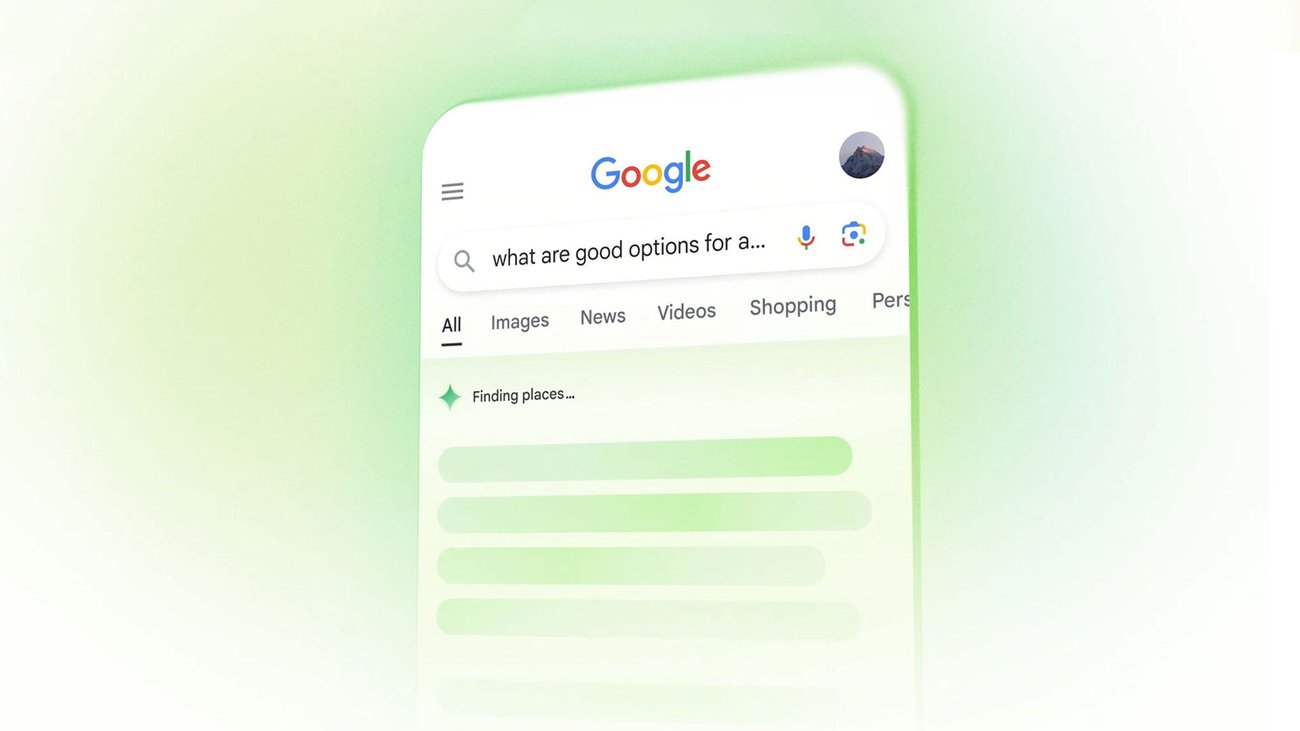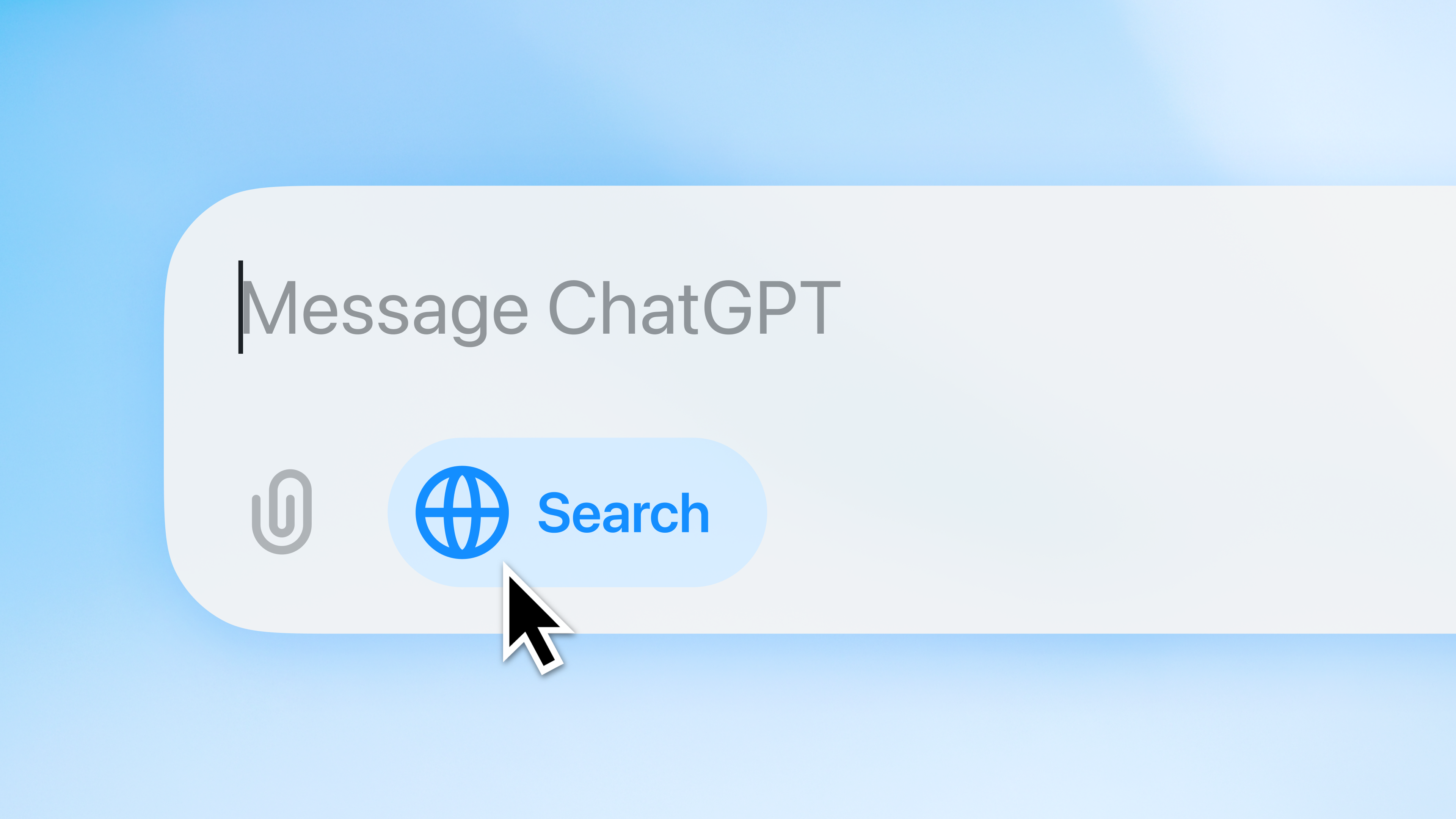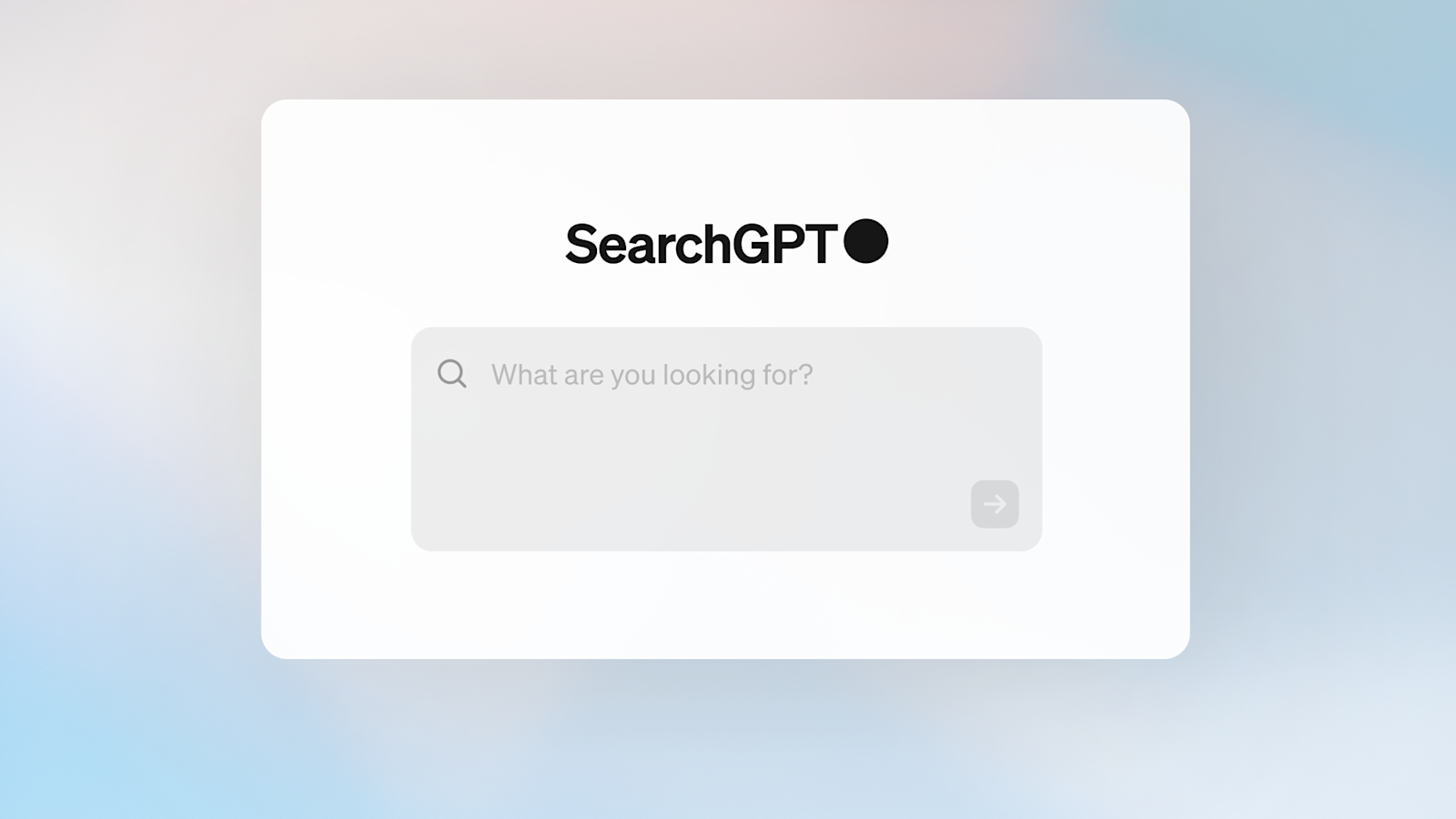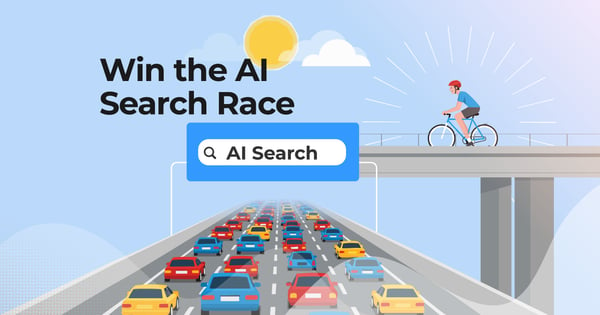Search is changing fast — and it’s reshaping how people discover brands. AI is no longer just a tool behind the scenes. It's now directly influencing what shows up on Google, Bing, and other search platforms. In this article, we’re focusing on what this means for multi-location brands. We’ll walk through what AI search optimization is, how it’s impacting local visibility, and what you can do to adapt.

Search Isn't the Same Anymore
AI-powered search doesn’t just show a list of links — it generates full answers. These summaries pull from what AI sees as the most trustworthy and relevant sources, which often include:
- Google Business Profiles
- Online reviews
- Directories
- Structured website content
Who’s Leading the Shift?
Google AI Overviews
AI Overviews have become a regular feature in Google search, now appearing in over 13% of desktop queries. They’re most common for informational searches—like “how local SEO works” or “best time to post on Google Business Profile”—but increasingly show up in branded and even navigational queries.
That means a user might now see a summary pulled from multiple sources before they even scroll down to the traditional blue links. Depending on how often and how credibly your brand is mentioned online, you might be featured—or completely skipped.
In late spring 2025, Google also began rolling out AI Mode, a feature that changes how queries are handled behind the scenes. Instead of responding to a single search, AI Mode:
- Breaks your question into subtopics
- Runs multiple searches in parallel
- Surfaces deeper, more diverse content across the web
This allows users to explore a topic from several angles—quickly. But it also means the competition for visibility is no longer just about ranking #1 for a keyword. It’s about being referenced, cited, and structured well enough to be pulled into those AI-generated overviews. source: https://blog.google/products/search/generative-ai-google-search-may-2024/
source: https://blog.google/products/search/generative-ai-google-search-may-2024/
ChatGPT
With its web-browsing feature, ChatGPT acts as a real-time information retriever. It’s used heavily for quick research and comparisons — including local services and stores. Brands that appear in structured content, feeds, or well-indexed websites are more likely to be represented accurately.
While ChatGPT has changed how people explore topics—especially for top-of-funnel research and ideation—it still represents a small fraction of overall search behavior.
Google processed over 5 trillion searches in 2024, growing more than 21% year over year, fueled in part by AI Overviews and new search modes. In comparison, ChatGPT handles around 37.5 million search-like prompts per day - a number that’s roughly 373 times smaller than Google’s daily search volume.
That means for all the buzz around conversational AI, most user journeys still start with traditional search. But ChatGPT is carving out a role—particularly in:
- Research-style questions (e.g. “How does local SEO work?”)
- Content generation and brainstorming
- Summarizing or comparing information quickly
 source: https://openai.com/index/introducing-chatgpt-search/
source: https://openai.com/index/introducing-chatgpt-search/
SearchGPT
Built on OpenAI’s technology and powered through Bing’s infrastructure, SearchGPT merges conversational AI with real-time search results. It’s part of a new wave of AI search interfaces that aim to streamline the journey from question to answer.
Unlike traditional search engines that return the same ranked list of links for every user, SearchGPT adapts to context—delivering different responses based on a user’s preferences, previous queries, or location. That means the same question can yield personalized answers, complete with follow-up prompts, summaries, and supporting sources.
 source: https://openai.com/index/searchgpt-prototype/
source: https://openai.com/index/searchgpt-prototype/
Perplexity.ai
Perplexity serves concise, citation-driven answers. It prefers domains with clear, structured answers, and often pulls from editorial sites and forums.
Perplexity AI positions itself not as a search engine, but as an “answer engine.” It combines real-time web results with a conversational interface, offering users direct answers with citations and suggested follow-up questions—all in one clean experience.
In early 2025, Perplexity reached over 50 million monthly visits, making it one of the fastest-growing alternatives to traditional search.
It’s especially popular among researchers, students, and marketers looking for faster ways to validate facts and summarize content. And unlike ChatGPT, Perplexity is focused on search-like tasks—which makes its rise more relevant for SEO and visibility.
 source: https://www.perplexity.ai/
source: https://www.perplexity.ai/
Local marketing made easy. Sign-up to our Monthly Newsletter below.
How AI Search Affects Local Visibility
Structured Listings Are the Foundation
Google AI Overviews and SearchGPT often pull business details from platforms like Google Maps, Bing, Apple Maps, and trusted directories. If your hours, categories, or location data are missing or inconsistent, you may not appear—no matter how good your content is.
Consistency across listings ensures that AI systems can “trust” your business info and display it in summaries and answer boxes.
Reviews Help You Get Chosen, Not Just Seen
On Perplexity, SearchGPT, and Google’s AI layer, review content is no longer hidden in a corner, but it’s featured directly in responses. AI may pull lines from reviews to describe your service or highlight what customers value most.
That means recent, relevant reviews improve not just your reputation, but your visibility in AI search results.
Informational Content Gets You Cited
Platforms like Google AI Overviews and Perplexity tend to favor sites that answer specific questions clearly, especially those starting with “how,” “what,” or “best.”
Brands that publish service explanations, how-to content, or store-specific FAQs are more likely to get picked up as cited sources or linked references.
5 AI Search Optimization Tactics for Multi-location Brands
You don’t need to chase every AI trend. But staying visible in AI-powered search means adjusting your strategy in a few smart, practical ways. Here’s how to stay present where AI pulls results:
1. Prioritize Local + Informational Content
AI Overviews are most often triggered by informational, low-competition queries—things like “how to return shoes to [store]” or “does [brand] have parking in [city]?” These aren’t high-volume keywords, but they’re highly relevant for local intent.
Create clear, helpful content around FAQs, how-to’s, or store-level questions that users might search conversationally. This helps your brand surface in Google AI Overviews and SearchGPT, especially if the content includes location-specific details.
2. Build a Discoverable Web Footprint
AI engines don’t just pull from your website. They gather signals from across the web, including:
- Business listings (Google Maps, Apple Maps, Bing, Facebook)
- Online reviews
- Mentions on Reddit, Quora, and local forums
- Structured data and product feeds
- YouTube videos and UGC
This is especially true for Perplexity, which draws from public sources beyond traditional search results. SearchGPT and Google AI Overviews also favor trusted, consistent, multi-platform data.
3. Track Which Queries Trigger AI Summaries
Not every search query is affected—yet. But many branded and local commercial searches are now generating AI results, sometimes listing your competitors instead of you.
Start monitoring:
- Which search terms now trigger AI summaries
- Whether your brand is cited in those summaries
- If traffic drops after an AI Overview appears
4. Use Structured Data Markup
Structured markup helps AI understand and organize your content. Add:
- Schema.org for locations, products, services
- FAQs with structured Q&A formatting
- Metadata for opening hours, addresses, and phone numbers
This makes your content easier to interpret and cite in AI-generated summaries, especially for Google and Bing.
5. Keep Reviews Fresh and Relevant
AI search doesn’t just look at star ratings. It pulls actual review text to help describe brands in summaries, especially in tools like Perplexity and SearchGPT, which may quote feedback directly.
Make sure your local reviews are:
- Recent
- Detailed and keyword-rich
- Actively responded to
This not only improves trust, but increases the likelihood of being surfaced by AI as a recommended option.
How PinMeTo Helps You Stay Visible in AI Search
At PinMeTo, we help multi-location brands show up in the places that matter, including AI-powered search results. Here’s how we support that:
Listings That Stay Synced
We make sure your business details — like opening hours, addresses, and service categories — stay accurate across the networks AI tools rely on, including Google, Apple Maps, Facebook, and Bing.
Structured Business Information
AI systems rely on structured signals to interpret your brand. We format and maintain key location data — like services offered, accessibility features, and holiday hours — so it’s readable by both users and AI models.
Location-Level Content That Reflects What’s Happening
Content freshness is an indirect ranking factor in many AI-driven results. By helping you publish localized posts and updates at scale, PinMeTo ensures your brand stays current and contextually relevant across your different locations.
Store Locator Fueling Local Discovery (and AI Visibility)
PinMeTo’s Store Locator helps multi-location brands drive real-world visits by making it easy for users to find, explore, and act on store-level details on hyper-local landing pages. This creates a consistent, structured data stream, exactly the kind of reliable information AI systems rely on to populate search summaries and answer boxes.
Language Detection: Smarter Conversation Management
PinMeTo’s language detection in Conversations and Reviews makes it easy to filter and manage customer interactions by language. This enables your teams to bulk reply efficiently and prioritize responses in the languages that matter most across different markets, especially helpful for brands operating in multilingual regions.
Spam Detection: Keep Your Inbox Clean
Our AI-powered spam detection flags and filters out irrelevant or malicious messages from Instagram and Facebook DMs. Suspicious conversations are automatically moved to a spam folder, helping teams focus only on genuine customer inquiries. It’s one less thing to worry about in high-volume inboxes.
Reviews and Responses That Build Trust
Customer reviews are increasingly cited in AI summaries. Managing and responding to them regularly sends strong quality signals — especially when reviews mention specific products, services, or experiences. We bring all your reviews into one place, making it easier to stay on top of this.
Search Performance Insights
Understanding where and how your brand is (or isn’t) appearing across networks helps you adapt. PinMeTo’s insights help spot gaps in your visibility — whether that’s a drop in impressions, fewer review mentions, or missing location data — so you can act before it affects your visibility.
To Sum Up
AI search is changing how people find and trust brands globally. It pulls from listings, reviews, and content across the web — not just what’s on your website. That’s why AI search optimization today means showing up clearly and consistently wherever people (and AI systems) look. It’s less about chasing trends, and more about being easy to find, understand, and trust.
Small shifts in your content, listings, and reviews can make a big difference — and help you stay visible as search keeps evolving.
Looking for ways to level up your local visibility?
Give us an overview of your business below and our experts will schedule a live demo with you.
Lily Adamyan, June 23



